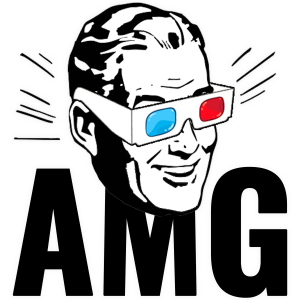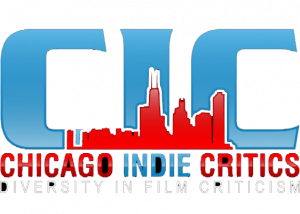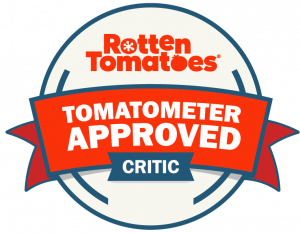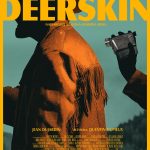
Justin Kurzel- Hot Seat Interview- Director- True History of the Kelly Gang
April 23rd, 2020
HOT SEAT INTERVIEW- JUSTIN KURZEL
I knew who the director Justin Kurzel was, but not in an entirely negative or positive way. I would call it neutral. He was the director of Assassin’s Creed. It starred Michael Fassbender and it is a movie that I didn’t hate and did not like. It looked good, had promise, but went into the pile of cluttered movies based on video games. I also knew there was plenty of praise for his other films- Snowtown and his 2015 version of Macbeth (I recently watched this and it is amazing!). And like any subject that you might interview, I began to look into his life, growing up in Australia, living in the UK, married to The Babadook star Essie Davis, and making films that push the boundaries of scope and narrative structure. His recent film, True History of the Kelly Gang is a bonkers film, with a star studded cast (Russell Crowe, George MacKay), visually gorgeous, muddy, sweaty, violent, and a biopic unlike anything I had seen before. It is a film that questions how a person’s story is told. All across the board, his films have similar tones and views on the struggles of men. His career is going to be quite amazing as he continues, because he doesn’t just direct his films. He digs his hands into them. They are under his fingernails and in his marrow. Here is AMovieGuy.com’s Hot Seat interview with Justin Kurzel:
AMG.COM: How are you doing during the time of Covid-19? I know it hit the UK and your hometown of Australia pretty hard.
JUSTIN KURZEL: Yeah, it’s great in that you are spending more time with your family and doing all those home renovations that you thought you would never do. But it is affecting how you are missing a whole lot of stuff, things you probably take for granted, but everything’s good. We are fortunate in Australia, especially in Tasmania, we have a very low number of cases, so it’s not as intense as what is happening in the states. We are experiencing a different shade of it here.
AMG.COM: I want to get into True History of the Kelly Gang. I heard it took 8-years to actually make happen, but coming off of Assassin’s Creed, this kind of movie is a bit more of your bread and butter, was this film a comfortable process or the tortured artist process?
JUSTIN KURZEL: I wasn’t approached about it till 2012, and I was going to make True History after Snowtown (Kurzel’s first film); Then I had the option to make Macbeth with Michael (Fassbender), and then Assassins really took over, but I was still sort of developing True History. I wasn’t completely into the project because I was weary of past Ned Kelly films. Not to say they were good or bad, it was just that they were heavily scrutinized, and no matter what they did, they were going to get a ribbing. I also wondered, why do another one? But something really clicked, because it was rooted in the past, and I wanted to do a small story. Something more personal. I re-read it and saw something about the idea of a person trying to tell their history, the idea that they were attempting to try and not have it stolen from themselves. Myths and legends are created for us, our own agendas, and this felt fresh and interesting. The fact that the book was from the point of Ned, you heard his voice, which was something that had not been done before. There was a little fiction, but there was an emotional truth, it felt different. It was a combination of all those things. Me wanting to experience something completely different from Assassins. Missing home, but also finally understanding what this film was all about.
AMG.COM: The screenplay by Shaun Grant, was it something you let him run with, did you look a bit over his shoulder, or you work together on it to make sure Ned Kelly’s story and the adaptation of the book was done justice?
JUSTIN KURZEL: We do an intense 2-4 weeks of working together. We did it on Snowtown and we did it on Macbeth- we’re actually about to do another film together. For True History and Snowtown we rented a house, lived together, and with True History we put up a wall, started to map out what the most important themes are. You have a puzzle in front of you and you start to put together what the film it is you’re making. Why are you attracted to these characters? What was it about them? True History was that; We were together for a long period of time, we were looking at the journey of Ned. We had a feeling that the end wasn’t connecting enough to the mother and at the Glenrowan hold up, with the freedom of his mother, so we reworked that. Then things just started to fall into place. And then Shaun goes away and he writes it. He’ll send me the pages, first drafts, and I’ll give him feedback on that. It’s a ping-pong game, back and forth. It’s very organic, strange relationship; I never thought I would end up in a working relationship with Shaun, but we really do enjoy being around each other. Sometimes that is all you need.
AMG.COM: The cast is amazing. There’s so many questions I want to ask about them, but just tell me about how you got Russell Crowe into the roll of Harry Power and choosing George MacKay to play the lead roll of Ned Kelly?
JUSTIN KURZEL: I am a big fan of Russel as well. It was an amazing experience working with him on the film. He was crucial in the end, because when the lead actor is probably going to be 23 or 24, someone that’s not as known, having Russell in the film is big. But number one we always saw him as Harry Power, the idea of a mentor figure, a bushranger that is known and revered throughout the land. Here his character is coming to the end of his days and he needs Ned more than Ned needed him. There was something wonderfully tragic about the character that made me intrigued about Russell playing him. He didn’t have to be this overarching hero. There was a bit of vulnerability in the character and fortunately for us, it was something that Russell saw in him as well. It was different from what he has done before. It was a massive job to seduce him a bit, talking to Russell in meetings, show him versions of the script. He became very involved in the writing of the songs in the film, it became collaborative. It’s amazing, he walks on set, on that day, he is surrounded by a whole bunch of newcomers, some guys having their first experience on film. Russell walks on and you feel it. A guy who has been a part of extraordinary films and had an amazing film life. He was gracious in what he gave off, he was willing to try different things, at the same time helpful in moments to see things in a different perspective.
George MacKay, we were looking for someone that could write those words, have a sophistication, and a poetic innocence look. Someone that wouldn’t go down the path of bushranger and that was important to us. By the nature of how he was playing Ned, there were options there for him, and that tragedy of Ned. Those options in the end, he throws off and becomes the fate, the destiny that he was always going to be. A lot of that had to do with the mother character of Ellen (Essie Davis), her ambitions for him, not wanting him to outgrow, but there was something about George that I could use. I saw him, said, okay, there is a beauty and an innocence there, a sophistication where you believe he lives these words. And then I have to take that actor and shift them towards the brutality in the end, which was more interesting than the other way around. When someone comes on screen you think there’s something dangerous about them. I wanted to utilize what George is, which is a beautiful man, to then corrupt that beauty, which is why he was perfect for what we wanted to do.
AMG.COM: You had worked with your wife Essie Davis briefly on Assassin’s Creed, but her performance here is fantastic, really inspired, so how did you go about directing her? Did you say, “hey, what you did in The Babadook, do more of that?”
JUSTIN KURZEL: No, usually, it’s actually interesting because, we’re pretty good at separating our work and our private life. We first and foremost met creatively, so that’s always been the fundamental part of our relationship. Creatively we get one another, enjoy each other. If we ever have a film, where your suddenly talking about a character or a role, it’s never felt unusual or strange. Mutual discussions we had about Ellen, and the types that we thought she could be, and the attitude we thought she would have. Finding that natural connection with some of those ideas and owning them, so it was following in line with all the other actors.
AMG.COM: The way I would describe this movie is “brutally beautiful”. Were you conscious of staying away from letting the story become too glossy?
JUSTIN KURZEL: Yeah, the book doesn’t feel that way either, it’s never romantic or heroic, or something familiar. It’s quite jagged. It has sharp points and a dirt under the fingernails feel. There are westerns that I enjoy and they have that dirt under the nails look, it makes you understand, and realize the badlands that these people come from. We wanted the idea of good and bad being blurred around that time. Especially in Australia in the 1870’s, it was a violent place. You’re usually inspired by the energy from the writing material and I didn’t want to make a biopic. I wasn’t that worried what the wagons looked like and I find that most period pieces, when they go down that route, things become quite stylized anyway. Even if they are reaching for authenticity, it starts to meld into something that is stylized. The energy of the book wasn’t that and I wanted to not be held down by the period. I wanted there to be a familiarity for the audience, that they looked at the characters, and felt like they knew them. We couldn’t afford to do a large period piece anyway, we did it through the characters, and the set pieces, trying to find another way into creating the film. We wanted to get you inside of Ned’s head as a young boy and do it cinematically, allow the world to open up a bit more.
AMG.COM: I heard an excellent story from Charlie Hunnam that he did a bit of improvising working with Russell Crowe, where he joked, poked fun at him about putting on weight? Did that happen and how did this go?
JUSTIN KURZEL: Charlie says that I was the one that told him to say it, I distinctly remember that he was the one that decided that (laughs). It was interesting and fun, Russell Crowe arrives on set, I’ll be honest, I was sort of intimidated by him, making sure that he was okay, I didn’t want him being uncomfortable. He’s a person that has a lot of aura to him. You are very aware of it and what was lovely was that Russell really liked Charlie and Charlie loved Russell. The two of them have these key roles in True History, so they hit it off. The next day, you could feel there was an antagonism between the two characters, not the two actors. Harry Power has it in for Sergeant O’Neil, so it’s a tense dynamic. Those two, when they face off with each other, it was after coming off a night of real bonding. Maybe the fact that they had bonded the night before, it gave them a bit of Dutch courage to have a go at one another. I talked with Charlie about how he was going to fight back with Russell and I can’t remember all the specifics of it. It was something along the lines of, “you should go at him.” Russell was going to give it to him as good as it gets and then Charlie came up with that line. Russell was fantastic, there was a moment where he was smiling and staring at him and he came up with a kind of a, “fuck off” line. It was lovely, they both winked and smiled at one another. I don’t think that would have happened had they not had that bonding night before. I think that confidence and respect allowed that playfulness to happen. I was a bit worried for a moment, you don’t know. Actors like to provoke each other, but you want to make it feel respectful. They both had a great sense of humor about it.








